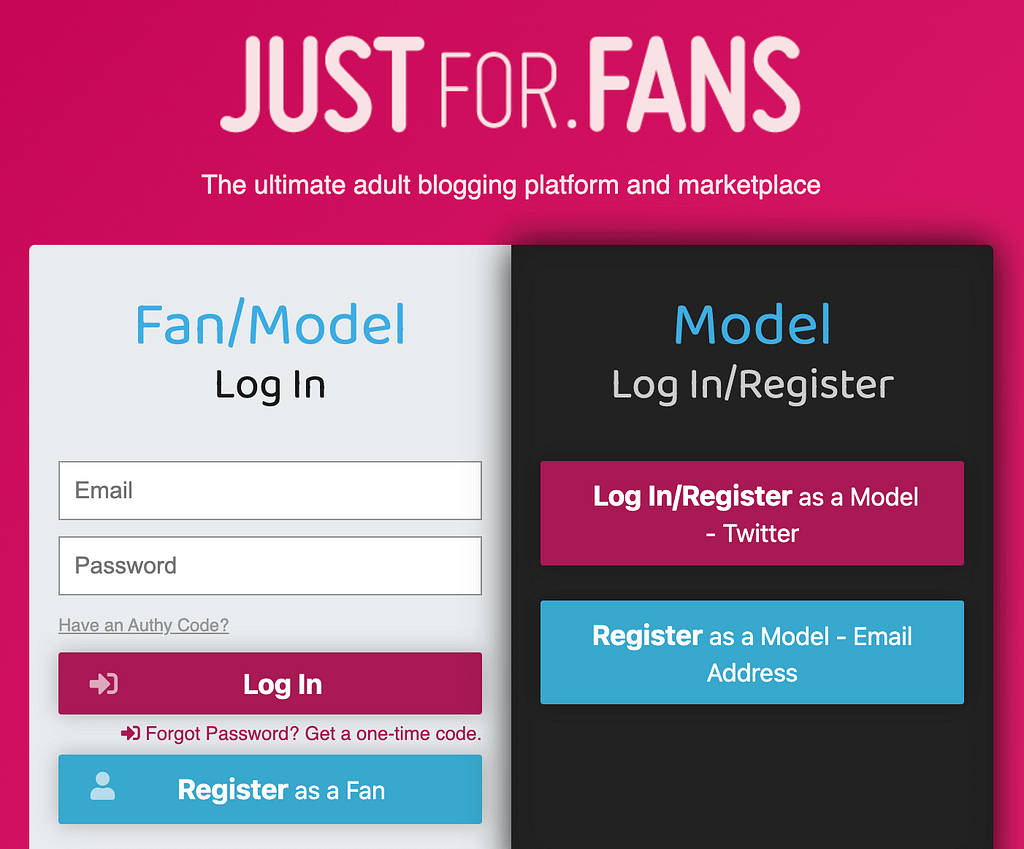Just For Fans (JFF) and OnlyFans emerge as prominent platforms. Each offering a unique canvas for creators to showcase their craft, they stand as pivotal pillars for monetization and audience engagement. But, which one leads the way to success? Our insightful comparison unveils the optimal choice for content creators, from features to financial prospects. Dive deep into an analytical exploration of what these powerhouses offer, ensuring your online presence not only shines but also rewards your creative endeavors. Join us as we dissect the details, vital for every content creator’s decision-making.
Understanding the Distinct Features of JFF and OnlyFans for Content Creators
Subscription and Earnings: A Comparative Analysis

Revenue Streams and Content Monetization
Exploring the revenue streams available to creators, both platforms enable monetization through subscriptions and pay-per-view (PPV) content. Notable is the facility for fans to tip creators directly on JFF, a feature that allows supporters to offer a token of appreciation beyond the subscription fees. Such tipping can significantly boost a creator’s income when used effectively. OnlyFans, meanwhile, is well-known for its PPV messaging feature that lets creators send exclusive content to their subscribers for an additional fee. This feature is particularly conducive to creators who specialize in creating content that is tailored and exclusive, potentially leading to higher revenues and a more personalized fan experience.
Platform Usability and Interface Features
In terms of usability, both platforms emphasize ease of use and creator-friendliness. However, JFF particularly caters to the LGBT+ community, with filters that make it simpler for users to find content that aligns with their preferences. In addition, JFF content creators are also known to sell customized items, which is not currently a feature on OnlyFans. These platform-specific features can play a significant role in a content creator’s decision, especially if their content or the target audience aligns with these distinctive elements. It’s essential for creators to consider their content strategy and how platform features can assist in maximizing their content’s reach and engagement.
User Experience and Audience Engagement
Engaging an audience is a critical consideration for content creators when comparing Just For Fans (JFF) vs OnlyFans for Content Creators. OnlyFans leads with the option for creators to live stream to their audience, offering real-time interaction. This feature is absent on JFF, which may impact creators who rely on live engagement to build a rapport with their followers. Furthermore, OnlyFans has a broader audience spanning various demographics, whereas JFF has a niche, targeted audience mainly within the LGBT+ community. Such considerations are vital for creators who are strategizing on how to best connect and grow their follower base on the respective platforms.
Promotional Capabilities and Visibility
Both platforms offer distinct promotional tools to enhance a creator’s visibility. On OnlyFans, creators can leverage a free preview feature for promotion, which can attract a wider audience. Conversely, JFF helps boost traffic by providing an affiliate link, allowing creators to earn from sales generated externally. This difference in promotional approach signifies the divergent marketing capabilities of each platform and how they can be optimized by creators to expand their reach and monetize their content more effectively.
Community Support and Platform Interactions
Community support and interaction are paramount for building a successful presence as a content creator. JFF differentiates itself by providing comprehensive support, including health insurance and other benefits to its creators. This focus on creator support is designed to attract content creators who wish to align with platforms that offer more than just an income opportunity. OnlyFans, with its larger audience, inherently provides a wide community reach but does not provide the same level of targeted support. Thus, understanding the level of support and community interaction available on Just For Fans (JFF) vs OnlyFans for Content Creators can guide creators toward a platform that aligns with their support needs and community engagement desires.
Maximizing Revenue and Exposure: Strategic Advantages for JFF versus OnlyFans Users
Understanding the Earning Potential: Just For Fans (JFF) Vs Onlyfans For Content Creators
When analyzing Just For Fans (JFF) Vs Onlyfans For Content Creators, the earning potential of both platforms bears significant consideration. JFF allows creators to retain 70% of their earnings, lending itself to a generous revenue model, while OnlyFans increases this to an even more enticing 80%. Although at first glance the higher percentage on OnlyFans may appear more attractive, it’s essential for creators to delve deeper into the ancillary benefits provided by each platform. These benefits can, in many instances, result in an uplift in actual revenue earned, regardless of the percentage differences. This underscores the importance of strategizing beyond the basic payout percentages to maximize income.
Comparison Just For Fans Vs OnlyFans
| Fonctionnalities | Just For Fans (JFF) | OnlyFans |
|---|---|---|
| Revenus | 70% | 80% |
| Payment | Weekly | On demand |
| Minimum Payment | 50$ | 20$ |
Fostering Niche Communities: Target Audience and Content Strategy
While OnlyFans is renowned for its substantial user base allowing for diverse content creation, JFF specializes in catering to the LGBT community, thanks to its founder’s roots. This presents a vital strategic advantage for creators who seek to target that specific audience. Content creators on JFF are likely to engage with a more focused demographic, which can foster a strong sense of community and loyalty, aspects that are highly valuable for sustaining a long-term revenue flow. In the Just For Fans (JFF) Vs Onlyfans For Content Creators debate, understanding the nuances of one’s audience can be a deciding factor in building a dedicated following.
Comparing Feature Sets: Exclusive Tools for User Engagement
Distinctive features between OnlyFans and Just For Fans (JFF) offer creators different tools for user engagement and content monetization. OnlyFans paves the way for live streaming events which can captivate audiences in real-time, a feature absent on JFF. Conversely, JFF empowers its creators with the option to sell individual clips and offers text messaging services, thereby opening additional revenue streams. As creators debate Just For Fans (JFF) Vs Onlyfans For Content Creators, the selection of features that align with their personal content creation style and audience engagement preferences becomes crucial in tipping the scales to one side or the other.
Choosing the Right Platform: Key Considerations for Content Creators
 Profitability and Revenue Share
Profitability and Revenue Share
When considering Just For Fans (JFF) Vs Onlyfans For Content Creators, the decision on which platform to choose often comes down to profitability. It’s important to take into account the revenue share offered by each platform. On OnlyFans, content creators keep a significant 80% of their earnings, while on JFF they retain 70%. This difference can have a substantial impact on long-term earnings, especially for those who are planning to generate a considerable income from their content. Creators should think about their financial goals and choose a platform that aligns with their ambitions and supports their growth with a fair profit share.
Features and Functionalities
Each platform has its unique set of features, which are pivotal for the Just For Fans (JFF) Vs Onlyfans For Content Creators debate. On JFF, users can purchase individual clips and access other personalized items, which allows content creators to offer a more tailored experience to their audience. On the other hand, OnlyFans offers the ability to live stream, creating real-time engagement opportunities. Creators must reflect on what functionalities align better with their content strategy and how they wish to engage with their audience to cultivate a robust and loyal following.
User Demographics and Target Audience
Understanding the demographics of your audience is crucial when comparing Just For Fans (JFF) Vs Onlyfans For Content Creators. JFF has a strong foothold within the LGBT community, thanks largely to its founder’s influence. Meanwhile, OnlyFans appeals to a broader audience, which can be both an advantage and a source of increased competition. Content creators should consider the niche they wish to cater to and weigh whether a specialized platform with a targeted audience or a more generalized platform with a wider reach would be more beneficial to their brand and content reach.
Payout Thresholds and Frequencies
When choosing between Just For Fans (JFF) Vs Onlyfans For Content Creators, the payout policies are another important consideration. The minimum payout limit is higher for JFF at $50, compared to OnlyFans at $20, which can affect cash flow, particularly for emerging creators. Additionally, the payout frequency differs, with OnlyFans offering daily withdrawals versus JFF’s weekly schedule. These factors directly influence a creator’s ability to manage and access their earnings and should be carefully evaluated.
Marketing and Growth Potential
The ability to market yourself and grow your audience is integral to your success as a content creator. OnlyFans has more brand recognition, which can offer a powerful platform for marketing and exposure. JFF, being less saturated, might provide unique opportunities to stand out and attract a devoted fan base. Ultimately, creators should assess each platform’s marketing tools, external promotion capabilities, and the potential for organic growth, to ensure that the chosen platform aligns with their marketing strategy and audience-building efforts.
FAQ – JFF vs OnlyFans: Optimal Choice for Content Creators
How do JFF and OnlyFans differ in payout structures and frequency for creators?
JFF and OnlyFans offer distinct payout policies. JFF typically provides weekly payouts, giving creators a steady cash flow. OnlyFans payouts can be requested anytime but are processed within 3-5 business days. For example, a creator earning consistently may prefer JFF for its regularity, whereas those accumulating larger amounts may opt for OnlyFans to minimize transaction frequency.
Which platform offers better content control and privacy settings for creators?
Both platforms prioritize creator control and privacy, but with nuances in their approach. JFF allows more explicit content and offers ‘stealth mode’ to hide online status, ideal for privacy-minded users. OnlyFans provides customizable privacy settings including blocking by geographic location. For instance, a creator from a small community might choose OnlyFans to block local IP addresses.
What are the differences in audience and traffic between JFF and OnlyFans?
OnlyFans boasts a larger general audience while JFF caters to a more niche, LGBTQ+ friendly crowd. OnlyFans receives massive traffic, leveraging a wide range of content genres. Conversely, JFF might provide a creator targeting LGBTQ+ demographics a more engaged and appropriate audience. A fitness influencer might thrive on OnlyFans, but a LGBTQ+ activist may find a more supportive community on JFF.
Can creators cross-promote or transfer their followers from one platform to Another?
While direct transfer of followers isn’t possible due to platform restrictions, creators can cross-promote their content. Leveraging social media and exclusive content teasers can entice followers to join another platform. A creator may use their established OnlyFans base to promote a new JFF account, offering unique or tailored content as an incentive.
How do the subscription and tipping systems on JFF compare with those on OnlyFans?
Subscription and tipping systems are fundamental for creator revenue on both platforms. JFF and OnlyFans allow fans to subscribe monthly, with the option to tip for exclusive content. The main difference lies in commission; OnlyFans takes a 20% cut, while JFF takes a 30% fee. Creators often balance the higher fee on JFF with potentially higher engagement rates and tips within its niche community.
Choosing between JFF and OnlyFans is pivotal for content creators aiming to maximize their online presence. Each platform offers unique features designed to cater to different content strategies. Whether you prioritize exclusive engagement or broader audience reach dictates which suits your personal brand the best. Your journey as a content creator is just beginning, and the opportunities are endless. Build your social media presence today and watch as your content takes flight on the ideal stage.
















